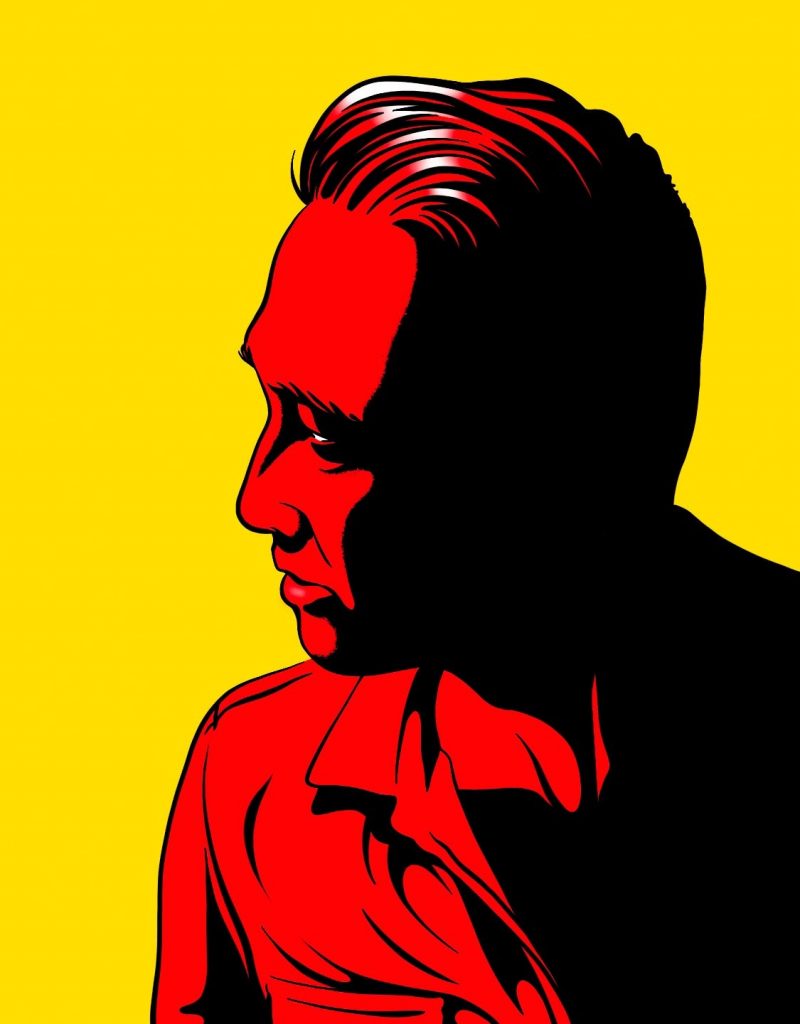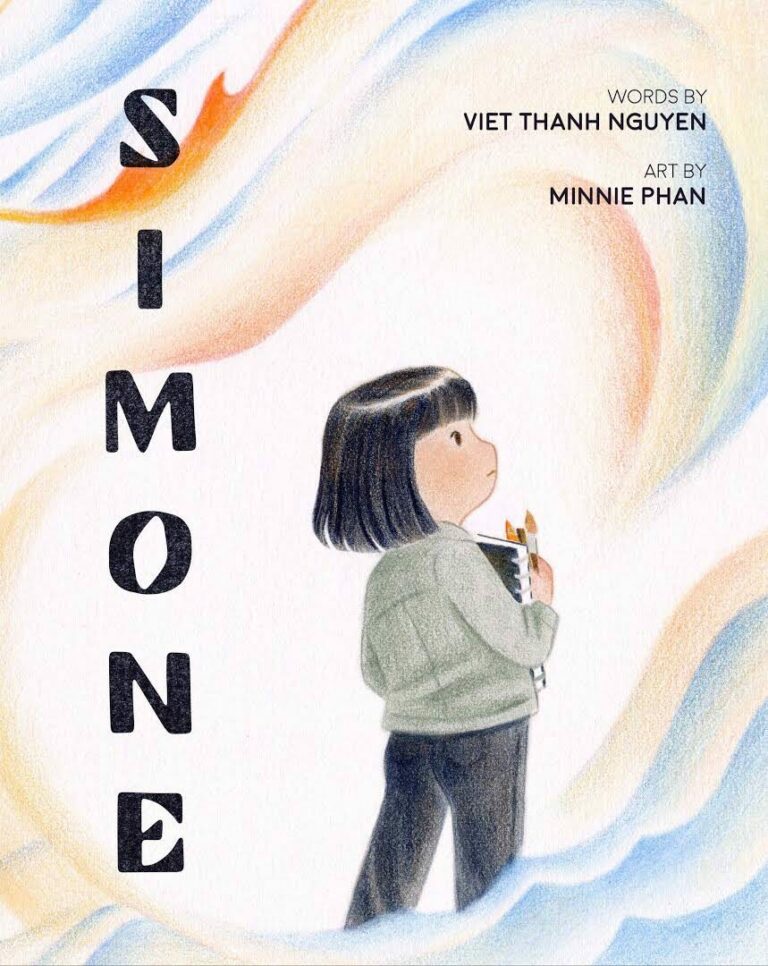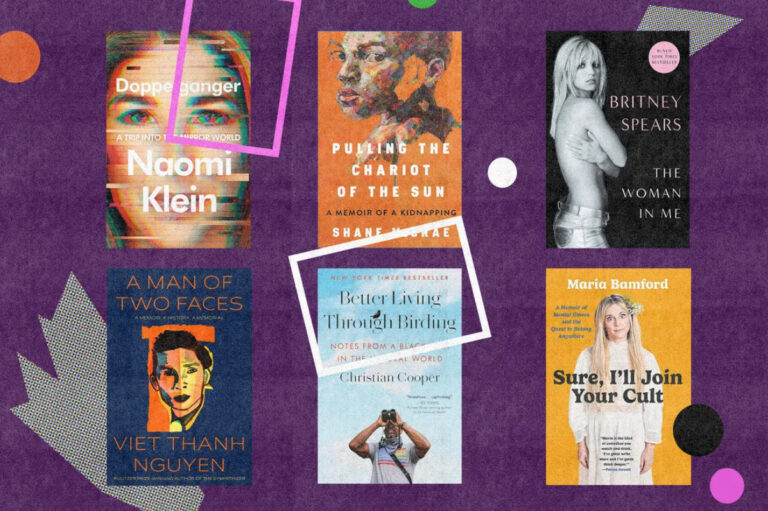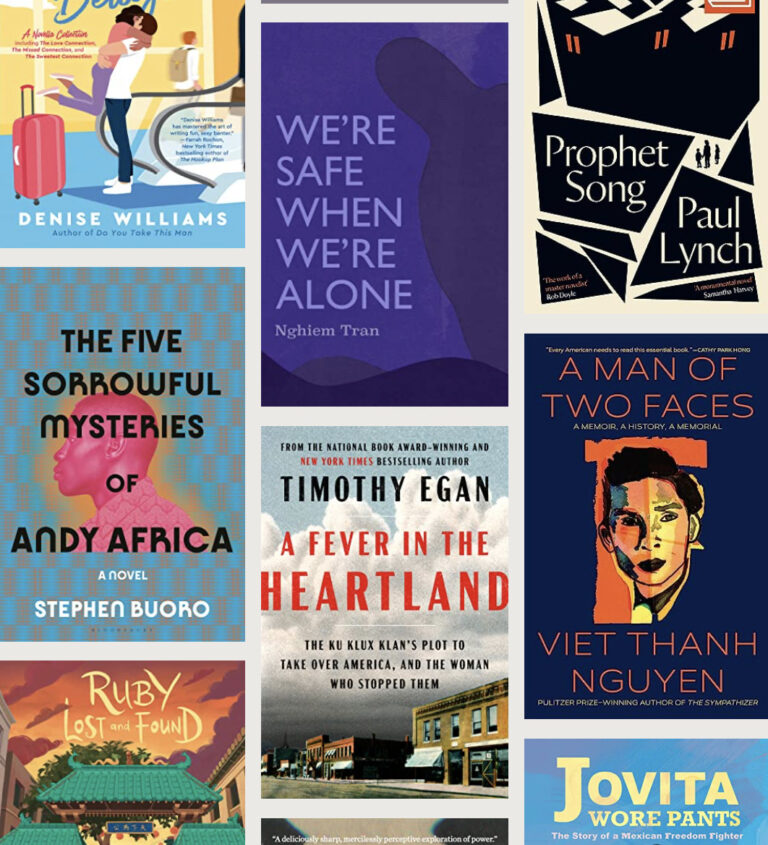Jonathan Dee reviews The Committed for the New Yorker.

“I wanted my fiction to be as critical as it was creative,” Viet Thanh Nguyen recalled in an essay a few years ago. “But I didn’t know how to do this, and no one could teach me this, and it took the discipline of sitting in a chair for countless hours over 20 years before I could even approach bringing together the critical and the creative.” This patience, and this determination to escape traditional influences, help explain why Nguyen made his début as a novelist at the relatively late age of forty-four, a début that proved, for author and readers alike, worth the wait. “The Sympathizer,” which won a Pulitzer Prize in 2016, is set during and just after the years of the war between North Vietnam and South Vietnam. Its unnamed Vietnamese narrator is a spy—a double agent, in fact, living as an anti-Communist while working for Communists—though calling the book a spy novel is about as helpful as calling “Crime and Punishment” a police procedural. It is critical, indeed, in more than one sense; it contains and embodies a healthy dose of political and literary theory (Nguyen holds a Ph.D. in English and is a professor at U.S.C.), and it is scathing not only about America’s acts during the war but also about its subsequent cultural depictions of those acts.
The novel was greeted rapturously, with many reviewers stressing the new perspective it offered on the Vietnamese experience—on the war and its legacy. Nguyen, partly from modesty and partly as a reprimand, hastened to point out that he was by no means the first writer to offer this perspective. (He named, among others, the memoirist Le Ly Hayslip and the novelist Bao Ninh.) It’s just that English-speaking audiences, having ignored those earlier works, imagined that they did not exist. Still, there was something about “The Sympathizer” that was genuinely unprecedented. The novel’s angry, unsettled, dialectical intelligence is apparent in the double meaning of its title: “sympathizer,” a designation so damning in the worlds of war and politics that it can get a man killed, also describes what might be considered the essential quality of a good novelist—an instinctive, almost compulsive tendency to see every issue, and every human being, from multiple sides. “I am a spy, a sleeper, a spook . . . a man of two minds,” the novel begins, in what seems safe to read as a nod to the urtext of American outsider fiction, “Invisible Man.” (Nguyen’s son is named Ellison.)
Following his début, Nguyen published “The Refugees,” a collection of short stories from those self-directed apprentice years, the sort of file-clearing often engineered by publishers to ride the wave of an author’s unexpected success. And he has used his literary renown to amplify an outsider’s voice with an insider’s megaphone. In dozens of high-profile opinion pieces, he has ripped into racism and inequality in the film industry, in college admissions, in the Western literary canon; he has attacked the grad-school mystification of contemporary American fiction, specifically the culture of the “workshop.” In December, he published a Times Op-Ed warning white American writers not to abandon their trendy political engagement in the post-Trump era and go back to writing novels about “flowers” and “moons.” There is an occasional straw-man quality to some of these broadsides (flowers and moons?), but I suspect Nguyen knows that: you don’t get heard above the din by arguing politely or with ambivalence; you get heard by getting under the complacent skin of writers like me.
Now, six years after “The Sympathizer,” comes Nguyen’s follow-up novel, and it depicts the further self-narrated adventures of the same two-minded narrator. The first novel, having followed him from Vietnam to the United States and back again—from war zones to movie sets to reëducation camps—left him on an overcrowded boat heading for the open sea. “The Committed” rescues him from the boat and quickly sets him on French soil. Nguyen’s main character is the metaphorical and literal product of France’s own long and ugly history in Vietnam. His father is a French priest who impregnated his mother when she was thirteen and never acknowledged paternity. The novel is thus a homecoming of a particularly volatile sort, a tale of chickens returning to roost, and of a narrator not yet done with the world.
The action of the new novel, set in 1981, is chronologically contiguous with that of “The Sympathizer,” but “sequel” isn’t quite the right word for it; it’s more like a reloading. Upon arriving in Paris, our narrator—to whom, for simplicity’s sake, I will refer by one of his aliases, Vo Danh, which translates as “Anonymous”—moves in with his “aunt,” who’s really a spy posing as his aunt. He’s accompanied by his lifelong friend Bon, a hard-core anti-Communist who does not know about Vo Danh’s double agency. In the early chapters especially, there is quite a bit of recapitulation of things a reader of “The Sympathizer” would already know: Vo Danh was, in the course of his spy work, involved in two murders, for instance, and the ghosts of those victims pop up from time to time as a sort of chorus that only he can hear.
Taking a job cleaning toilets at what is described as “the worst Asian restaurant in Paris,” Vo Danh soon switches to selling drugs, seeing, in his aunt’s many wealthy, leftist intellectual friends, a lucrative market ripe for exploitation. Those friends include a figure known as “the Maoist PhD” and a particularly loathsome, bunga-bunga-party-loving socialist politician known as BFD. In BFD, one sees and hears traces of Bernard-Henri Lévy, and of the infamous International Monetary Fund head and accused maid-raper Dominique Strauss-Kahn; on a simpler level, these initials can be read as the derisive American-English acronym for “big fucking deal.”
The prospect of peddling hashish occasions a little soul-searching in Vo Danh:
Was I actually becoming that most horrid of criminals? No, not a drug dealer, which was a matter of bad taste. I mean was I becoming a capitalist, which was a matter of bad morals, especially as the capitalist, unlike the drug dealer, would never recognize his bad morality, or at least admit to it. A drug dealer was a petty criminal who targeted individuals. . . . But a capitalist was a legalized criminal who targeted thousands, if not millions, and felt no shame for his plunder.
The notion of the drug dealer or gangster as the ne plus ultra of the capitalist society that claims to shun him is not exactly unbroken ground in American art. But for Vo Danh the trouble his new livelihood invites is more immediate: his success soon makes him so recognizable that one day, strolling through Paris with his new Walkman on (“As a man of two minds, I can admit to the successes of capitalism, as I can admit to the charm of French culture”), he is attacked by rival drug dealers, Algerians, and, for the first but not the last time in the novel, nearly dies.
The escalations of revenge, and the questions of whether and why these two representatives of the worst of France’s colonial crimes should be trying to kill each other, account for much of the book’s story elements. There are also hints of a possible reunion with the man who tortured Vo Danh in the Communist reeducation camp, and preparations for a “culture show,” a pageant-like celebration of Vietnamese custom and tradition in which Vo Danh and Bon, with gleeful improbability, are asked to perform.
There was much more in the way of sheer incident in “The Sympathizer,” but neither novel is about plot. Rather, Vo Danh—occasional punctuations of violence notwithstanding—is serially placed in situations that will allow him to talk about ideas. The “critical” side of Nguyen’s hard-won artistic synthesis appears more forcefully in “The Committed,” via Vo Danh’s narration but also in the form of references to, even lengthy quotations from, Julia Kristeva, Aimé Césaire, Walter Benjamin, Hélène Cixous, and, above all, the tutelary spirit of post-colonial studies, Frantz Fanon. (“The colonized is a persecuted person whose permanent dream is to become the persecutor.”) Nguyen, viewing realism as a sort of bondage for the imaginative novelist, does what he has to do in order to get these writers and their ideas onto the novel’s stage; even the bouncer at Heaven, the brothel owned by Vo Danh’s boss in the drug trade, nearly always has a book in his hand, and it’s always a book that Vo Danh is eager to discuss.
This spirit of improvisation, of adopting the form or tone appropriate to the moment’s purpose rather than overvaluing systematicity, hovers over the entire novel, as it did over “The Sympathizer.” There’s a photograph in it—just one. There are typographical flourishes that might have come from Laurence Sterne. There is a concrete passage in which the words “thank you” and “fuck you” alternate until the page is full. One scene appears in the form of a play. The aforementioned ghosts come and go. A scene in which a gangster tortures his victim while listening to pop music is lifted straight from Quentin Tarantino (and hardly seems worth the effort).
The tone is fluid as well. There are a lot of puns, such as a gangsterish Vietnamese character named Le Cao Boi. The intended effect of describing a boatload of refugees as “wretched in our retching” is hard to calculate, as is a joke about colonization’s effect on one’s colon. There seems to be a spirit of parody behind the fact that the female characters in both novels tend toward golden-hearted hookers and Mata Hari types, and, while much of this can be excused by the invocation of genre writing that suffuses both books, that doesn’t quite excuse sentences like “The sight of Lana ignited the puddle of passion sloshing inside my gas tank,” or “Her taut skin glowed with the light rising from the furnace of her ovaries.”
But to approach the novel in this way is to fall into a sort of trap. Nguyen has written, provokingly, about those qualities prized in English-language literature which fall under the quasi-mechanical heading of “craft”:
As an institution, the workshop reproduces its ideology, which pretends that “Show, don’t tell” is universal when it is, in fact, the expression of a particular population, the white majority, typically at least middle-class and often, but not exclusively, male. The identity behind the workshop’s origins is invisible. Like all privileges, this identity is unmarked until it is thrown into relief against that which is marked, visible and outspoken, which is to say me and others like me.
He argues that many foundational concepts put forward as literary postulates—character, setting, description, theme, plot—often conceal a cultural bias and a political intent. “Craft” is a false flag, a depoliticization of art and thus an undermining of art’s ability to change or even to question the status quo.
What’s interesting about the short stories in “The Refugees,” in this light, is that they are the product of craft—they’re more traditionally shaped than his novels, narrated in a notably more detached register, and are, in one way, less pervious to criticism. And though they’re good, they have nothing approaching the impact of the novels. It took Nguyen a while, it seems, to be able to act with confidence on what he valued in a work of fiction and what he didn’t.
In truth, it doesn’t really matter whether “The Sympathizer” is a “better novel” than “The Committed.” The absence of conventional craft, as much as the shared content, makes the two books into a single project. It’s the voice of the novels that matters, that ramifies, that keeps one reading: the anger, the indictment, the deep, questioning cynicism:
Yes! I, too, was universal, and my universal identity was to be me and utterly me, even if I was completely fucked up, and isn’t that what the French wanted? The French saw our shared past as a tragic happenstance of history, a romantic love story gone wrong, which was half correct, whereas I saw our past as a crime that they had committed, which was completely correct. And who are you going to believe? The rapist or the product of the rape? The civilized or the bastard?
The novel is essentially a delivery system for that voice, a series of pretexts for training it on forms of domination that have too long thrived without answering to it.
As “The Committed” progressed, there was one rather unlikely French author whose name began to sound in my head along with all the referenced ones, and thus it was with a certain exultation that, two-thirds of the way in, I saw that the hyper-scholarly brothel bouncer was reading Louis-Ferdinand Céline’s “Journey to the End of the Night.” Today, Céline is both celebrated as one of the most gifted stylists in modern French literature and reviled as a Nazi sympathizer and a vicious anti-Semite. Nor is it one of those cases, as with, say, Roald Dahl, where the bad human qualities come as a disappointment, or present a mystery as to how such a person could write such life-affirming books. Céline’s deep misanthropy is the subject of his work. And yet anyone who has read “Journey to the End of the Night” and “Death on the Installment Plan” (both forerunners of what we now call “autofiction”) will remember the pure stylistic energy generated by the spectacle of human beings failing to realize how awful they are, how awful are the crimes they casually commit every day. “As long as we’re young,” Céline writes in “Journey,”
we manage to find excuses for the stoniest indifference, the most blatant caddishness, we put them down to emotional eccentricity or some sort of romantic inexperience. But later on, when life shows us how much cunning, cruelty, and malice are required just to keep the body at ninety-eight point six, we catch on, we know the scene, we begin to understand how much swinishness it takes to make up a past. Just take a close look at yourself and the degree of rottenness you’ve come to. There’s no mystery about it, no more room for fairy tales; if you’ve lived this long, it’s because you’ve squashed any poetry you had in you.
There’s a reason that Nguyen has invited Céline into “The Committed.” Nguyen, too, is driven to raptures of expression by the obliviousness of the self-satisfied; he relentlessly punctures the self-image of French and American colonizers, of white people generally, of true believers and fanatics of every stripe. This mission drives the rhetorical intensity that makes his novels so electric. It has nothing to do with plot or theme or character. Those years of disciplined work have enabled the reverberant howl evoked by “the parting gift of the colonizer, the venereal disease of hatred.” BFD, we’re told, “was attired like an asshole,”
which is to say that he wore the long black tails, gray slacks, and top hat of an English gentleman or a nineteenth-century European nobleman, their refined manners and exquisite fashions suiting them perfectly for overseeing genocidal empires that looted nonwhite countries, enslaving and / or massacring their inhabitants, and sanctifying the result with the name “civilization.” . . . Whitewashing the blood-soaked profits of colonization was the only kind of laundering white men did with their own hands.
That voice has made Nguyen a standard-bearer in what seems to be a transformational moment in the history of American literature, a perspectival shift pressing the truth that the only difference between the heroic journey of the Pilgrims to the New World and the voyage of the Vietnamese “boat people” was that the Pilgrims “did not have a camera to record them as the foul-smelling, half-starved, unshaven, and lice-ridden lot that they were.” It’s a voice that shakes the walls of the old literary comfort zone wherein the narratives of nonwhite “immigrants” were tasked with proving their shared humanity to a white audience:
If Jesus Christ, child of refugees, born poor in a stable, a colonized person, a hick from the backwaters, despised by his society’s leaders and by the rulers of his leaders, a humble carpenter—if this Jesus Christ became universal—then so can I, motherfucker!
May that voice keep running like a purifying venom through the mainstream of our self-regard—through the American dream of distancing ourselves from what we continue to show ourselves to be.


